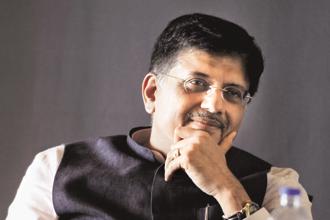India has progressed in leaps and bounds in providing electricity to people living on Indian soil. PM Modi led BJP government has made sure that electricity reaches all villages in India before the deadline set for May 2018. The massive electrification drive covering the length and breadth of India is quite an achievement by PM Modi and his government. The next target for the NDA alliance under PM Modi is to achieve universal household electrification by 31 March, 2019. Rural Electrification Corporation (REC) was given the responsibility of making electricity reach all the villages in India. REC still has the herculean task of providing electricity connections to all Indian homes by December 2018, under the Pradhan Mantri Sahaj Bijli Har Ghar Yojana (Saubhagya). This massive drive by the PM Modi led government has made other countries sit up and take notice. India is no more a small force in the energy sector both within and outside India. Power Grid Corporation of India Ltd. (PGCIL) is already present in 20 countries. From Asian countries such as Nepal, Bhutan, Afghanistan to the far off Tajikistan and Kenya, PGCIL has been active in consulting and construction of power grids in these countries as of today. This is probably what has driven more countries from the Middle East and Africa to seek out India’s help in improving the reach of electricity in their regions.
Syria, the war torn nation is among the forerunners in asking for India’s help in providing electricity. The power sector in Syria has been severely affected by the ongoing civil war as ISIS has wreaked havoc on Syrian soil for the past seven years. The Arab Spring or pro-democracy protests that overthrew long-rule of presidents in Tunisia, Egypt and other countries in the region have also played a part in the havoc created in the energy infrastructure in these nations. PGCIL and REC have been approached by the Syrian government for electrification and reconstruction work. Jordan too has approached REC for help in parts of Jordan which are still not electrified. Some other sub-Saharan African countries too have approached India in order to carry out entire rural electrification programmes in their countries, right from financing to technology transfer from preparation to execution.
Apart from Africa, PM Modi’s visit to the Gulf Arab states of Jordan, Palestine, the United Arab Emirates and Oman in 2018 has had a deep impact on the decision of the countries to turn towards India. The plan of PM Modi to form deeper bonds with India’s extended neighbours in the West seems to be bearing fruits. Chairman and Managing director of REC, P.V. Ramesh said, “Given our experience and expertise in the field of electrification, we are prepared to provide a range of services and financing for developing power sector in other emerging economies.”
Power secretary Ajay Kumar Bhalla hinted at India’s positive approach towards such propositions coming from African and Middle Eastern countries, “We are working in some countries in areas of transmission through Power Grid Corp. of India Ltd (PGCIL). We are willing to provide consultancy to those who seek assistance through the consulting arms of PGCIL and RE.”
In the coming decade, India is soon going to be a force to be reckoned with in the energy sector. Development driven reign of PM Modi has made India a hotbed for innovations and growth in defence, electrification and production sectors. The offers coming in from other countries are a stamp of approval on the growth model of PM Modi’s new India. Opposition leaders within the country and critics from abroad will keep finding faults with the development taking place. The countries which are looking to develop and provide for their populations, however, are keen to learn more about how accelerated growth can be achieved. Middle East and Africa are the first ones to initiate contact but many other countries will soon follow suit. REC and PGCIL just need to make sure that they keep delivering their best in the future in Middle East and Africa, the results will be apparent when villages in other countries will shine.
